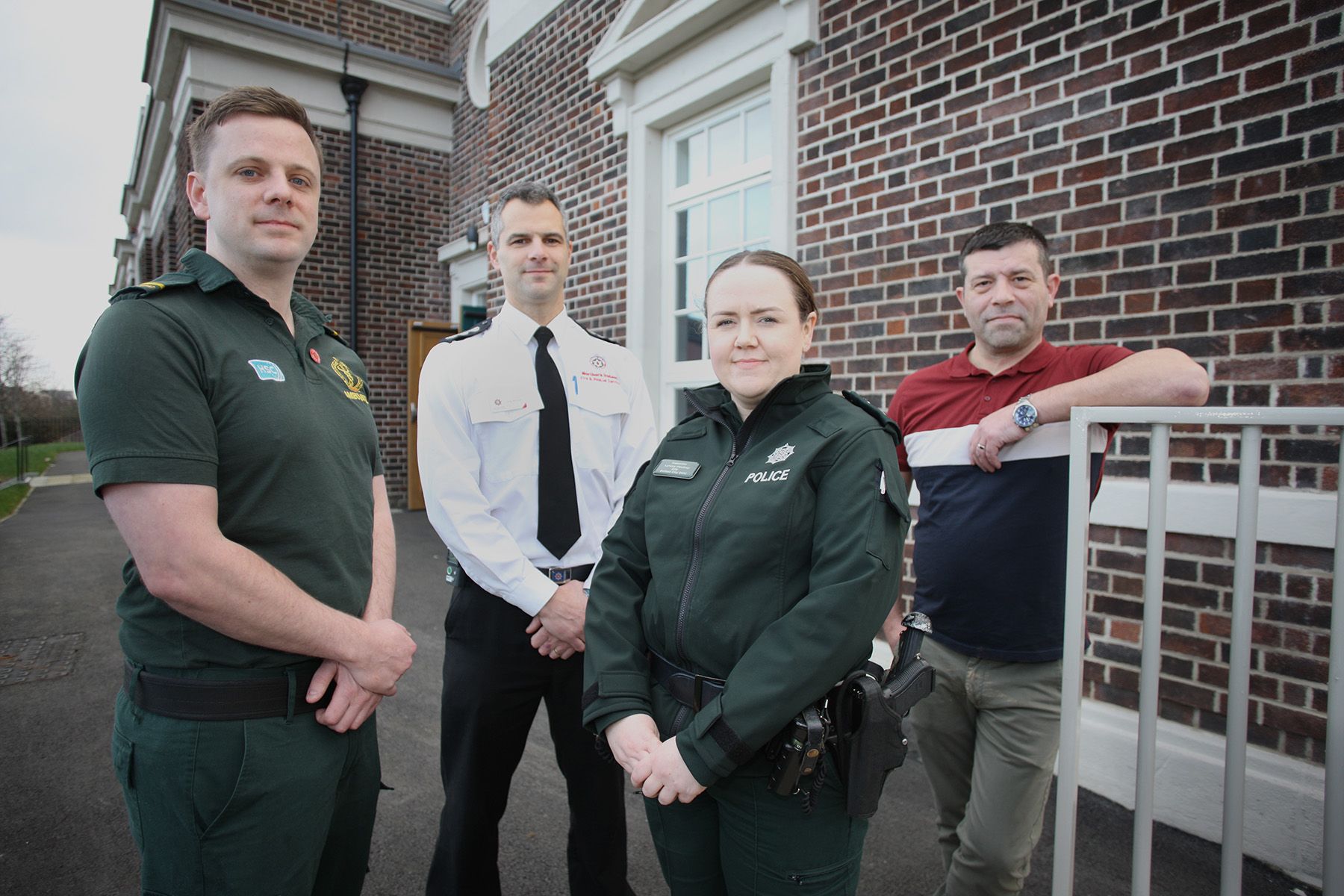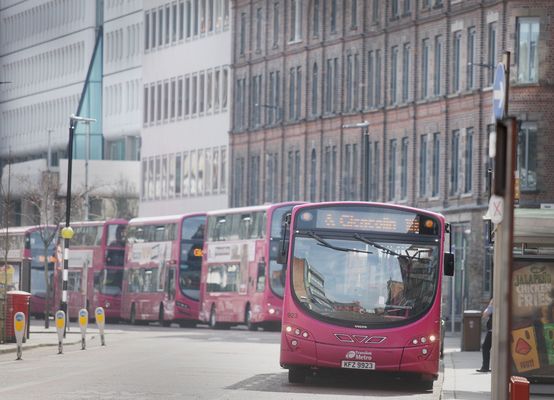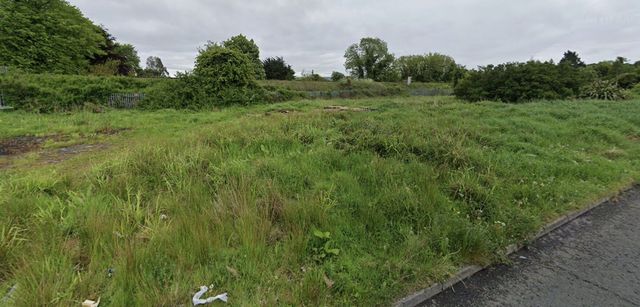COMMUNITY leaders have met with emergency services at an event in West Belfast to discuss the rise in attacks on personnel from the emergency services.
Members of the Fire Brigade (NIFRS), the PSNI and the Ambulance Service (NIAS) each spoke and showed presentations at St Comgall's detailing the extent of the pressures services are facing amidst a growing trend of attacks while they are on duty.
The event was organised by the Upper Springfield Development Trust (USDT) working through the Communities in Transition programme and aims to teach youth groups and school children about the important role the emergency services play through a series of workshops and to also explain how devastating attacks can be on staff.
Barry Costello, a paramedic with NIAS spoke of how assaults on ambulance crews were putting the already stretched ambulance service under even more pressure and shared a personal story of his own experience of assault while at work.
Mr Costello said that on average three ambulance crews are attacked each day and from 2021 to 2022 they recorded 688 assaults on staff. These assaults ranged from verbal abuse, to physical abuse with weapons and also sexual assault. Over 80 per cent of assaults were reported as having happened when the perpetrator was under the influence of alcohol and drugs.
Most surprisingly, it was revealed that young people are not the main perpetrators of assaults on ambulance crews in the North and most assaults are caused by those who are middle-aged.
Frankie Dillon from NIAS said he had been appointed as a Violence Reduction Officer, the first one in Ireland. Mr Dillon stated crews were now being issued with body cameras and stab-proof vests because of the dangers they routinely face while trying to save lives.
West Belfast Neighbourhood Policing Team met with politicians,community representatives, Northern Ireland Fire Service and youth services to explore collaborative solutions to stop the recent attacks on emergency services.
— Police West Belfast (@PSNIBelfastW) January 21, 2023
Thanks to the community for your support on this issue. pic.twitter.com/1hDCtYBq8C
Both Mr Dillon and Mr Costello stressed that those in the ambulance service were there because they believed in helping people and said what most people do not realise is that when a crew is assaulted it results in the entire ambulance being taken off duty. Mr Dillon recalled a recent event when a patient fouled the paramedic kit of an ambulance worker and it resulted in the ambulance having to be recalled and the equipment replaced at cost of time and resources, which are already at breaking point.
Andy McVeigh, District Commander for North and West Belfast of the NIFRS, said attacks on firefighters were less common than other services but a worrying trend had developed recently on TikTok with videos egging others on to assault the Fire Service.
Mr McVeigh said since April 2022, 59 attacks had been made on their personnel.
The NIFRS’ biggest issue was theft of equipment such as sledgehammers from their trucks which Mr McVeigh said were not easily replaceable and that recently bricks had been put through windscreens whilst crews were answering calls. Mr McVeigh also highlighted the risk and damage fires such as gorse blazes – which raged on Black Mountain last year – posed to crews and how difficult they were to put out.
Inspector Lynsey Moutray of the PSNI said attacks on ambulance crews and the loss of ambulances had resulted in the PSNI being trained in life-saving care such as the use of defibrillators and that often enough the PSNI would be rushing to respond to a health crisis as they would a crime.
Inspector Moutray said in 2022 there had been just under 200 attacks on the PSNI of which 51 per cent resulted in vehicles having to be taken off the road. Inspector Moutray also said in previous cases officers responding to serious domestic violence assaults had to turn around after their cars were attacked en route with paintbombs which covered the windscreen.
Speaking to Andersonstown News paramedic Barry Costello said: “On average there are three attacks a day on the Ambulance Service. That means an ambulance crew has to come off the road. Considering the pressures on the Ambulance Services, the NHS and A&E this means there are less units available to respond to big emergencies such as heart attacks, cardiac arrests, strokes etc.
“It is a very finite resource and attacks on our members depletes the number of personnel and ambulances available to respond to emergencies. I was assaulted over a year ago and it massively impacted me and my ability to do my job.
“It’s a very harrowing experience and I had to do extensive trauma counselling just to be able to get back to do the job I love. People who become paramedics and join the ambulance service don’t join for the money, they join because they want to help others and they shouldn’t have their jobs made any harder for them.”
Seán Valente from the Upper Springfield Development Trust said they put on the event to raise awareness of the issue and to make sure people were aware of the pressure emergency services were under while trying to respond to calls which save lives.
"Today is all about awareness. We want community and youth leaders to come and get a feel about what emergency services go through on a daily basis with attacks on them. We want to highlight how services are affected. It could be your mum, dad, relative in need of emergency help and to think they can’t get the help they need because of an attack is frightening.
“We see the situation like a stool – if one of the legs goes the stool will fall. If the ambulance and fire service are attending a road traffic accident and are attacked and have to pull out then it leaves someone’s life at risk.
"We want to develop today’s talk and take it into schools, youth clubs and community organisations to allow them to hear from the services first hand."






